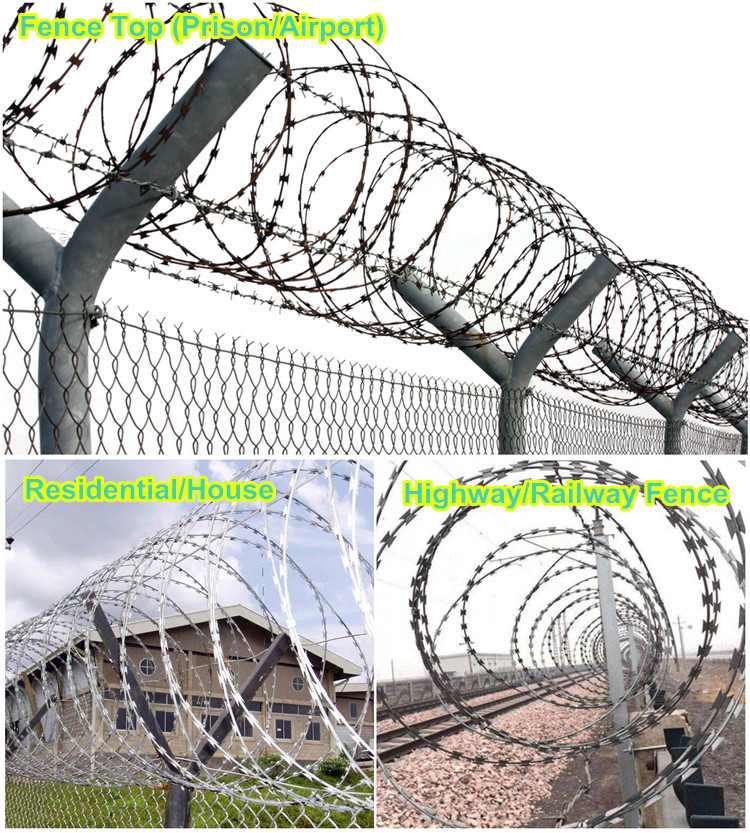Aug . 07, 2024 16:00 Back to list
Understanding CE Certification for Woven Wire Fencing and Its Importance in Construction Standards
CE Certification for Woven Wire Fencing Ensuring Quality and Safety
Woven wire fencing has been used for a variety of applications, including agricultural, industrial, and residential settings. As the demand for quality fencing solutions grows, so does the importance of compliance with safety and quality standards. One significant certification that impacts the woven wire fencing industry is the CE certification. This accreditation ensures that products meet the essential requirements set by the European Union, and it affirms a manufacturer’s commitment to quality, safety, and environmental protection.
What is CE Certification?
The CE mark, which stands for Conformité Européenne, is a mandatory conformity mark for products sold within the European Economic Area (EEA). It indicates that a product complies with EU legislation and has undergone rigorous quality checks. CE certification is essential for manufacturers looking to engage in trade within Europe, as it facilitates the smooth movement of goods while ensuring consumer safety.
For woven wire fencing products, CE certification involves a comprehensive assessment process. This includes evaluating the materials used, the production processes, and ensuring that the final product adheres to specific performance standards related to strength, durability, and environmental impact.
Importance of CE Certification for Woven Wire Fencing
1. Quality Assurance CE certification guarantees that the woven wire fencing products are manufactured to high standards. It assures customers that the fencing is strong, reliable, and built to last. This is particularly crucial in applications where the fencing must withstand considerable stress, such as livestock containment, security applications, or perimeter fencing for commercial properties.
ce certification woven wire fencing

2. Safety Compliance Woven wire fencing must meet safety standards to protect both people and animals. CE certification ensures that the fencing materials are free from harmful substances and that the finished product does not pose any risks. This is especially important in agricultural settings, where livestock may be present.
3. Market Access CE certification opens doors for manufacturers, enabling them to access markets within the EU, which is one of the largest consumers of woven wire fencing products. Without this certification, companies may face trade barriers, limiting their growth potential and market reach.
4. Environmental Considerations As sustainability becomes a pressing concern, CE certification places emphasis on the environmental impact of products. Manufacturers that achieve CE certification for their woven wire fencing demonstrate a commitment to producing eco-friendly products, which can influence purchasing decisions for environmentally-conscious consumers.
5. Consumer Confidence Finally, the CE mark enhances consumer confidence. Customers are more likely to choose products with CE certification, knowing that they are investing in a quality and safe solution. For manufacturers, this can translate into increased sales and an improved brand reputation.
Conclusion
In conclusion, CE certification for woven wire fencing is an essential aspect of ensuring quality, safety, and compliance with European regulations. It not only helps manufacturers gain a competitive edge in the market but also protects consumers and the environment. As the global demand for high-quality fencing solutions continues to rise, the adherence to standards like CE certification will become increasingly vital in maintaining trust and reliability within the industry. For consumers and manufacturers alike, the implications of this certification extend far beyond a simple mark, representing a commitment to excellence and safety in every fiber of woven wire fencing.
-
Hop Dipped Galvanized/PVC Coated Temporary Fence - Anping County Xingzhi Metal Wiremesh Products Co., Ltd.|Temporary Fencing Solutions, Durable Security Products
NewsJul.30,2025
-
Hop Dipped Galvanized/PVC Coated Temporary Fence-Anping Xingzhi|Durability&Cost-Effective
NewsJul.30,2025
-
Hop-Dipped Galvanized PVC Fence - Anping Xingzhi | Durable, Quick Deployment
NewsJul.30,2025
-
Hop Dipped Galvanized/PVC Coated Temporary Fence - Anping County Xingzhi|Temporary Fencing, Durable Security, Customization
NewsJul.30,2025
-
Hop Dipped Galvanized PVC Coated Temporary Fences - Anping County Xingzhi|Durable Corrosion Resistance, Quick Installation
NewsJul.30,2025
-
Hop Dipped Galvanized / PVC Coated Temporary Fence - Anping County Xingzhi Metal Wiremesh Products Co., Ltd|Durable Temporary Fencing&Versatile Applications
NewsJul.30,2025



